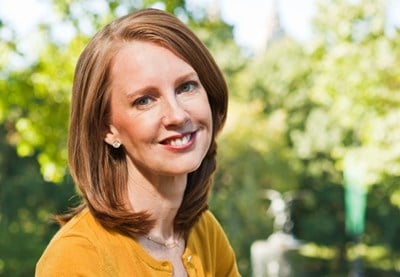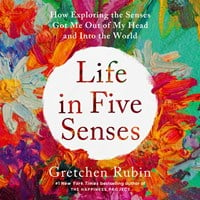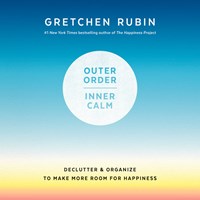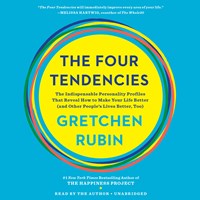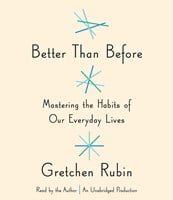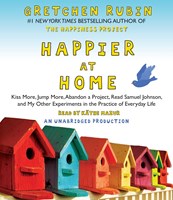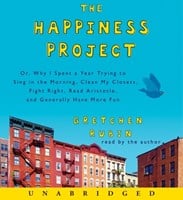Talking with Gretchen Rubin
Bestselling author and happiness expert Gretchen Rubin’s work focuses on helping people “get the life they want.” Her new work, THE FOUR TENDENCIES, offers vital insights on helping others reach that goal.
The book focuses on how people tend to respond to expectations: external expectations (such as deadlines or requests from others) and internal expectations (such as keeping a New Year’s resolution or sustaining an exercise program). Considering their responses to such outer and inner expectations, Rubin divides humans into four categories: Upholders, Obligers, Rebels, and Questioners, and offers insights about how understanding their own tendencies will transform people’s lives at home, at work, and in other aspects of life.
An Upholder herself--a relatively rare breed of folks who meet both inner and outer expectations easily--Rubin was puzzled by readers who loved her “happier” ideas but had a hard time implementing them. After all, people can readily identify what will make them happier. “Oh, they get it!” says Rubin. “If they quit sugar, read more, slept more, put down their devices, spent more time with friends . . . It’s not that they haven’t figured it out, it’s that they’re having trouble following through , for whatever reason.” This inability to follow through was frustrating for them--and for Rubin, who kept wondering, “Well, why aren’t they doing the things that they know would make them happier and that they seem to want to do? By figuring out why people are experiencing this disconnect, we can help solve it.”
Rubin’s popular books, blog, and podcasts have created a large and responsive audience--one that actively helped her deepen her understanding of the four tendencies. “I don’t know whether to say I invented or discovered these tendencies, but I’m the world’s only authority on this! That’s both exciting and difficult--I can’t look this stuff up!” Tapping into her audience, she says, “is hugely helpful. I’d introduced ideas about the tendencies on my blog, in my podcast, and in my book BETTER THAN BEFORE, and I was deluged with people’s questions, insights, experiences, and information.”
Rubin loves narrating her books--though she didn’t read HAPPIER AT HOME, after having been influenced by an acquaintance who “strongly argued you should have a professional narrator--it’s a better service to your listeners.” But, as she learned from her audience, “when you write this first-person kind of book, people really do want to hear it in your voice! Now that I have a podcast, that’s even more true. Listeners have come to know and expect my voice, so having another narrator is like someone dressed up as me!”
Rubin observes that “narrating your own work offers authors a moment of truth. If you haven’t carefully edited a book, narration can be a not-very-happy experience. You’re editing in your mind as you're reading. But I edit heavily. I often read difficult passages aloud as a way to look for infelicities or accidental rhymes or repeated words, which makes the narration a lot smoother.”
Rubin fell in love with audiobooks as a parent. Her daughters are older now, but she remains a “huge fan” of children’s and YA literature. “I’m in three kids’ book groups.” She clarifies: “These are groups for adults, no children involved!” Audiobooks allow her to delight in reexperiencing familiar works: “I’ve discovered I can hear books I’ve read literally 40-50 times in a whole new way.” Rubin listens for pleasure, often at the end of her day, and enthusiastically rattles off some favorites: “Obviously listening to Jim Dale read Harry Potter is just transformative. Then there’s Laura Ingalls Wilder with Cherry Jones--just amazing. No one else can read Laura Ingalls Wilder for me. And there’s E.B. White reading CHARLOTTE’S WEB in his nasal, flat voice--“Where’s Papa going with that ax?’”
Despite their beloved familiarity, Rubin is astonished to find there’s much still to discover in such books. “I’m a fast reader. Sometimes with something like Harry Potter, where it’s so exciting, I’ll want to race, but listening forces me to hear every line. Wow! Foreshadowing! Here’s a subtle Ravenclaw allusion that I missed the first eight times I read the book! Listening to it again--you pick up different things. It’s just a joy.”--Jessie C. Grearson
OCTOBER/NOVEMBER 2017
© AudioFile 2017, Portland, Maine



